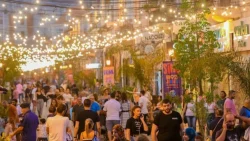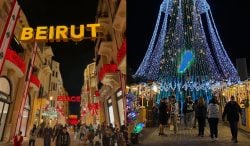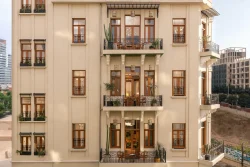For the Love of Lebanese Comics
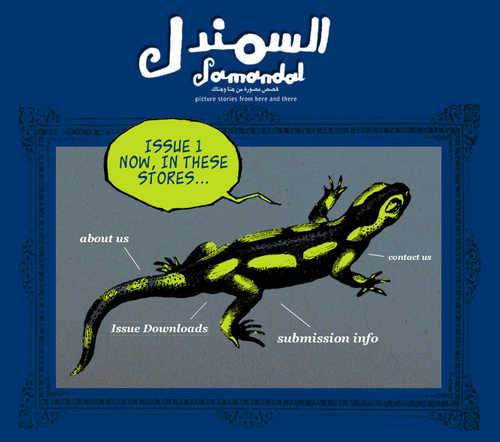
Comics were once a popular and flourishing medium in Lebanon, with Arabic translations of Superman and the locally produced Bissat el Reeh capturing the collective imaginations of an entire generation. Sadly, the local comics industry fizzled out due to the civil war and the collapse of the Lebanese currency and has yet to regain the influence it once had.
“A few laudable attempts here and there, but we are far from the profuse production of the 1980s,” says Lebanese comic book historian and collector, Henry Matthews. With efforts such as the Samandal series, Malaak series, Mazen Kerbaj’s surreal and ironic daily strips for Al-Akhbar newspaper, the scene is getting a big push forward. And now a new event is urging Lebanese to get back into comics.
Taking place this weekend at UNESCO Palace is the 5th International Festival of Comics Beirut 2012. The event was organized by “Let’s Comics,” a project designed to bring young people together through cultural and artistic exchange.
This goal was pursued through two ventures: first, a series of comic-making workshops held in Beirut, Tripoli, and Baalbek. During these workshops, several young local talents with abilities ranging from amateur to the more skilled artists, gathered to create comics about a specific theme.
The second venture was an online competition. Major rewards are in store for some lucky artists: the special “Comics to Bridge Cultures” prize by Italian magazine Popoli and the chance for up to five artists to produce material to be published by Popoli. In addition, one workshop participant and one competition participant will be awarded with a trip to the Lukka Comics and Games Festival 2012 in Italy, the second largest comic book convention in Europe.
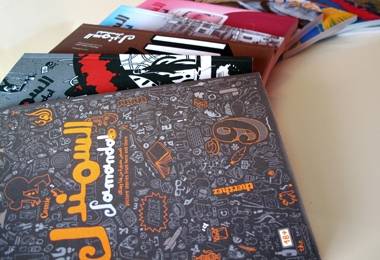
(The cover of Lebanese comic book Bissat El-Reeh)
Beirut.com spoke to Fouad Mezher, local comic book artist and illustrator who served as an instructor during the workshops: “Basically what we did was explain the three stages of comic-making: story, penciling, and inking. My personal purpose for the workshop was giving people the means to tell a story. Some participants were really excited about getting into comics, and I was glad to have inspired them.”
“I’ve been reading comics since I can remember, and trying to make my own since I was 13,” says Muhammad Moneimné, one of the participants in the Beirut workshop. Many young people today, both artists and non-artists alike, have fond memories of comics from their childhood. For Moneimné, those were “Superman (the Arabic translations), Mickey (the Arabic translations from the gulf), Majid Magazine, and especially Al-3arabi Al-Sagheer, a comic about the Palestinian cause.” “All of these works from my childhood helped push me towards comics,” he adds.
The team behind “Let’s Comics” has been hard at work over the last few months setting up the festival. “We have been contacting Lebanese and Italian publishers with an interest in comics, who will be present, and we hope to expose some of the local artists to them and hook them up with one another,” says Mezher.
Aside from efforts like the “Let’s Comics” festival, Matthews believes more steps must be taken before comics can truly reclaim a revered spot in Lebanese culture. “These efforts are good but you need more” says Matthews, adding: “I have tried, in vain, to get funding to start an Arabic Comics Documentation Center. Only such a center can start a revolution in comics, reprinting old and lost comics as well as new [ones], publishing histories of individual series, holding competitions and exhibitions, serving as a comics public library.”


